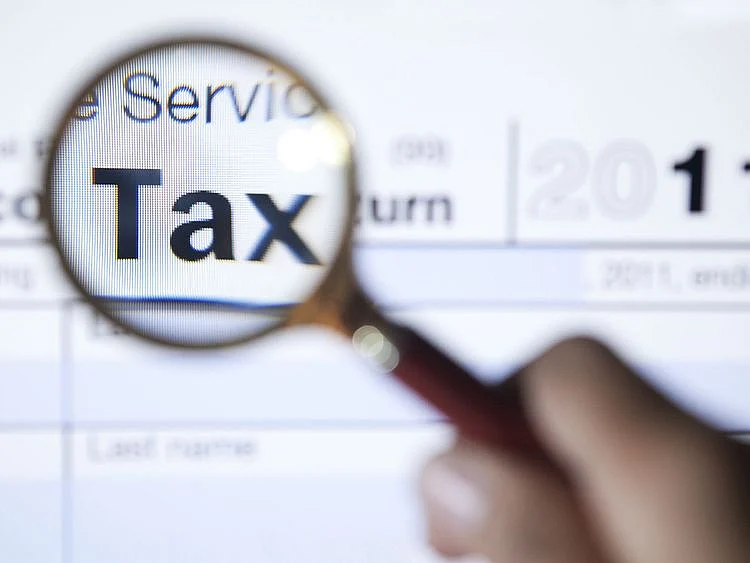UAE businesses need to look closer at ‘fringe areas’ in corporate tax regime
As Ministry provides more updates, fringe areas will need better understanding

Jaffa cakes are orange-flavoured, biscuit-sized cakes with chocolate coating. I now see them in supermarket shelves across Dubai. What is the connection between Jaffa cake and taxes?
To learn that, we have to go back to a real-life story from the 1990s. The elaborate UK VAT rules require that cakes and biscuits are taxed at zero-rate as they are considered essential items. However, chocolate-covered biscuits are considered a luxury and therefore taxed at a standard rate of 20 per cent (previously 17 per cent).
McVities, a key producer of Jaffa cake, treated Jaffa cake as zero-rated for VAT purpose. However, HMRC, the UK tax authority, argued that Jaffa cake should be considered as chocolate-coated biscuits and taxed at standard rate. The matter eventually ended up in the court, which then had the onerous task of determining whether Jaffa cake is a cake or a biscuit.
The court looked at all aspects such as the name, texture, size, ingredients, baking method, consumer attitude, and location in supermarket aisle while making its decision. Believe it or not, one of the most pressing arguments was around what happens when Jaffa cake goes stale. The court found that stale Jaffa cake was hard like a stale cake and not soft like a stale biscuit. McVities won the suit.
This curious story is oft-quoted as an example of how complicated, and silly, taxation can get. Tax rules, like any rules, attempt to create a sense of black and white by defining scope around the rules. Life sometimes gets in the way in all its glorious shades of grey.
Circumstances inevitably exist or arise which fall, or could be interpreted to fall, on both sides of a line drawn by the tax authority. Such border-line areas attract all kinds of judgements and complexities.
A repeated theme in the UAE announcement of corporate taxation has been that the Ministry of Finance intends to keep it simple. Indeed, we have already seen that desire being played out in the UAE VAT regime and in the detailed corporate taxation announcements, particularly evidenced by the application of a single tax rate as opposed to multiple rates that we see in many other jurisdictions.
But the MoF also expressly recognises that some level of complexity in CT is unavoidable.
While there are some judgemental fringe areas in the UAE VAT too, there is one very important distinction between VAT and corporate taxation. In VAT, businesses simply play the role of a tax collector on behalf of the Federal Tax Authority (FTA). While this has an impact on the business's cash flow, there is often very little, if any, impact on its bottom-line. (Just to be clear, I am not talking about the penalties here).
A direct bottom-line impact
The story of corporate tax is however entirely different. The liability directly hits the bottom-line, i.e., the profit that the business owners can take home. Therefore, the stakes are much higher.
The fringe complexities can arise in a number of areas. The public consultation document recently published by MoF gives us some definitive indications around where things are going and where we can expect difficulties.
The first key question will be whether you are subject to a corporate tax at all. The basic rule is that all UAE businesses are subject to tax while individuals living in the UAE are not. For the vast majority, a decision on where one stands in this regard will be relatively straightforward. However, complexities can arise for:
Considering the tax incentives promised in the UAE free zones, businesses with a free zone connection will also require a detailed evaluation of their CT obligations and exemptions. Furthermore, where business relationships involve multiple related entities and individuals - a common practice in the UAE even for small businesses - the tax grouping and transfer pricing rules and their implications will require some hard assessment.
Complexities can also arise when determining the amount of profit subject to tax. The IFRS is widely used in the UAE for preparing financial statements. Whilst this brings some level of uniformity across the country, we mustn’t forget that accounting standards quite often require judgements, some with significant impact on the reported profit.
Options to IFRS
Further, the official announcements hint that accounting standards other than IFRS may be acceptable. Though accounting profit is the basis for computing taxable profit, the tax rules will exempt inclusion of certain incomes and prohibit deduction of certain expenses, inevitably bringing some judgements around items that fall at or around the borderline.
Any transactions between those who are taxed and those who are not will be especially subject to specific tax avoidance rules and scrutiny. All of this means that a clever play-off between the various accounting and tax rules may allow some flexibility around the amount of taxable profit recognised and tax paid in a year as long as such play-off is acceptable to the tax authority.
However, such ‘range of acceptability’ will be a key judgement the businesses may need to make in a number of areas. As we await more information from MoF and FTA, identifying and addressing these fringe areas of complexities should be a key focus as businesses prepare for CT introduction.
Network Links
GN StoreDownload our app
© Al Nisr Publishing LLC 2025. All rights reserved.